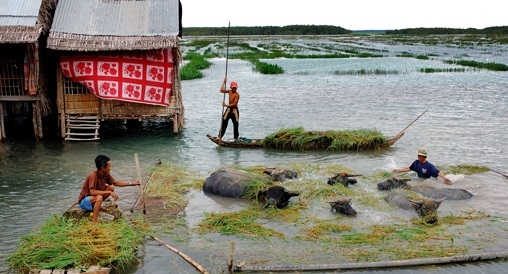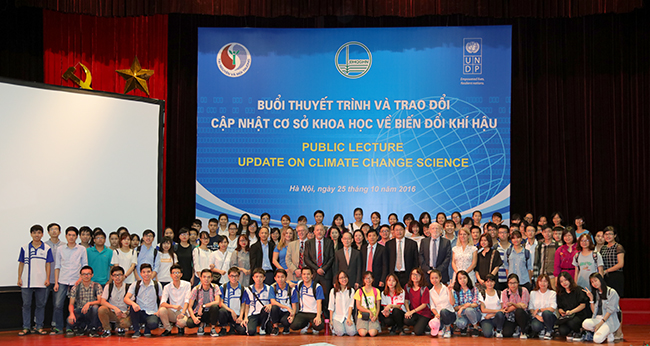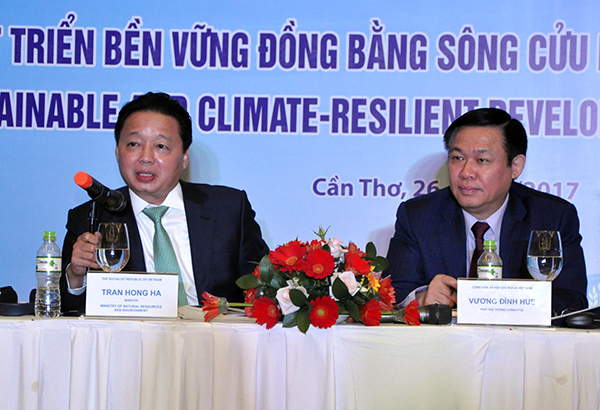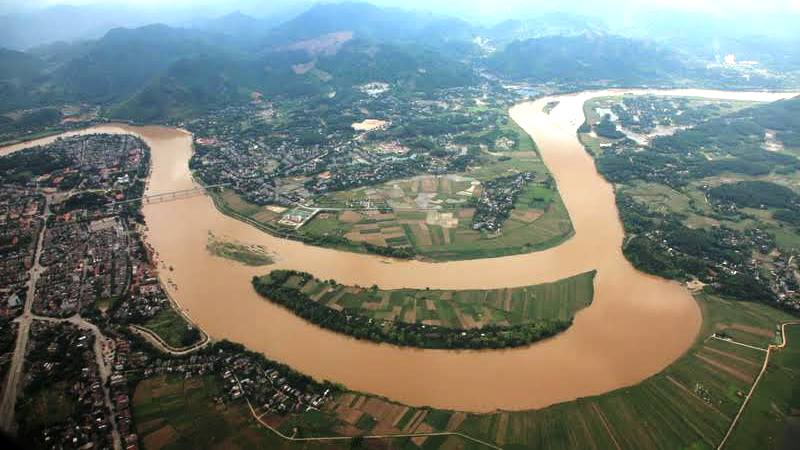
Co-chairs:
Dr. Tang The Cuong, Vietnam's Ministry of Natural Resources and Environment.
Dr. Alex Smajgl, Deakin University, Australia.
Secretaries:
Assoc.Prof. Huynh Thi Lan Huong, Vietnam's Ministry of Natural Resources and Environment.
Dr. Nguyen Ngoc Huy, Vietnam Japan University, VNU.
Brief introduction:
Mekong Delta occupies 12% of the total area of Vietnam, and accounts for 19% of the population of the country. Geographically, it is conveniently located in the trade route with ASEAN countries and the Greater Mekong Subregion. The delta has a dense network of rivers and canals, which has advantages in agricultural development, food industry, tourism and renewable energy. Mekong Delta is the largest agricultural production of Vietnam: contributing 50% of rice production and 95% of exported rice, 65% of aquaculture production, 70% of fruit production and 60% of exported fish.
In the context of globalization and international integration, the Mekong Delta has many opportunities for development but also faces many challenges as it is sensitive to climate change: Climate change and sea level rise occur faster than forecast, intensifying extreme weather events, affecting livelihoods and lives of people. The exploitation of water resources on the upper area of the delta, especially the construction of hydropower dams has changed the flow, reduced sedimentation, reduced fisheries resources, deepened salinization into the region, and adversely affected the socio-economic development of the region, including: environmental pollution, serious ecological imbalance, land subsidence, water level decline, coastal encroachment, natural forest areas, over-exploitation of sediment, increased risk of erosion. Worse still, there has been a lack of coordination between provinces in the region and decentralization between local and central governments on climate change adaptation. For these reasons and others, it is required to have a new vision of strategic orientation and comprehensive solutions to maximize mobilization of resources and the participation of different stakeholders for sustainable development in the Mekong Delta.
In this event, following questions shall be discussed:
- What is the evidence of climate change impacts in the Mekong Delta?
- Are there any good practices for climate change adaptation in the Mekong Delta?
- What are the gaps between policy and practice in responding to climate change in the Mekong Delta?
- What is the innovation for combating climate change and building resilience for the Mekong Delta?
- What are the areas that scientists should focus in the next decade to work together with government and people to build climate resilience in the Delta?
- How can we develop better collaboration among academic community and policy makers, managers, and business sector?





